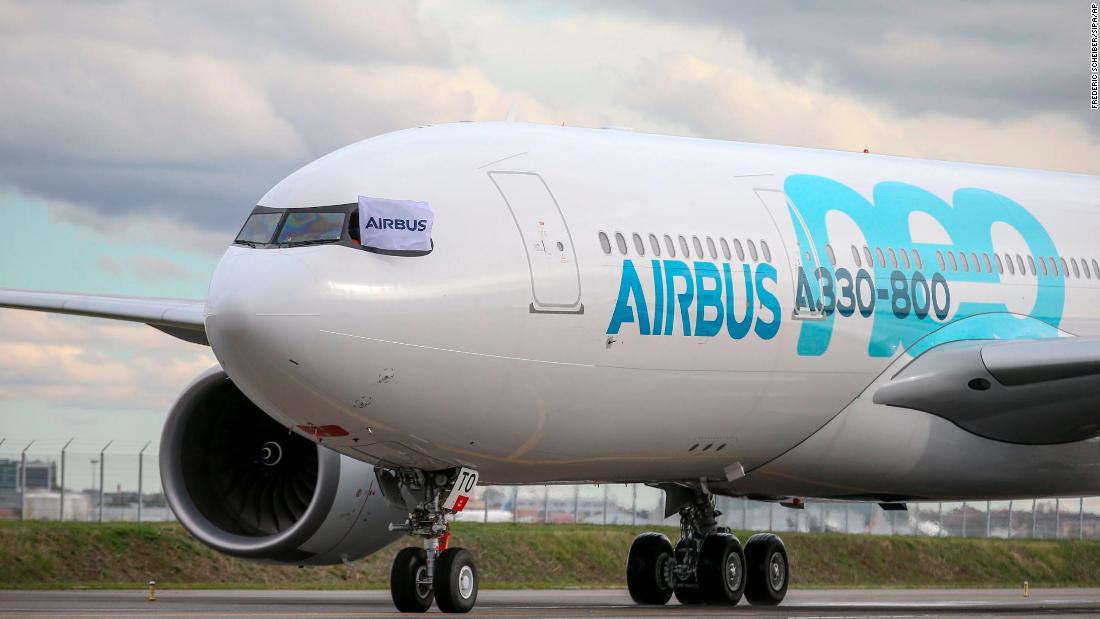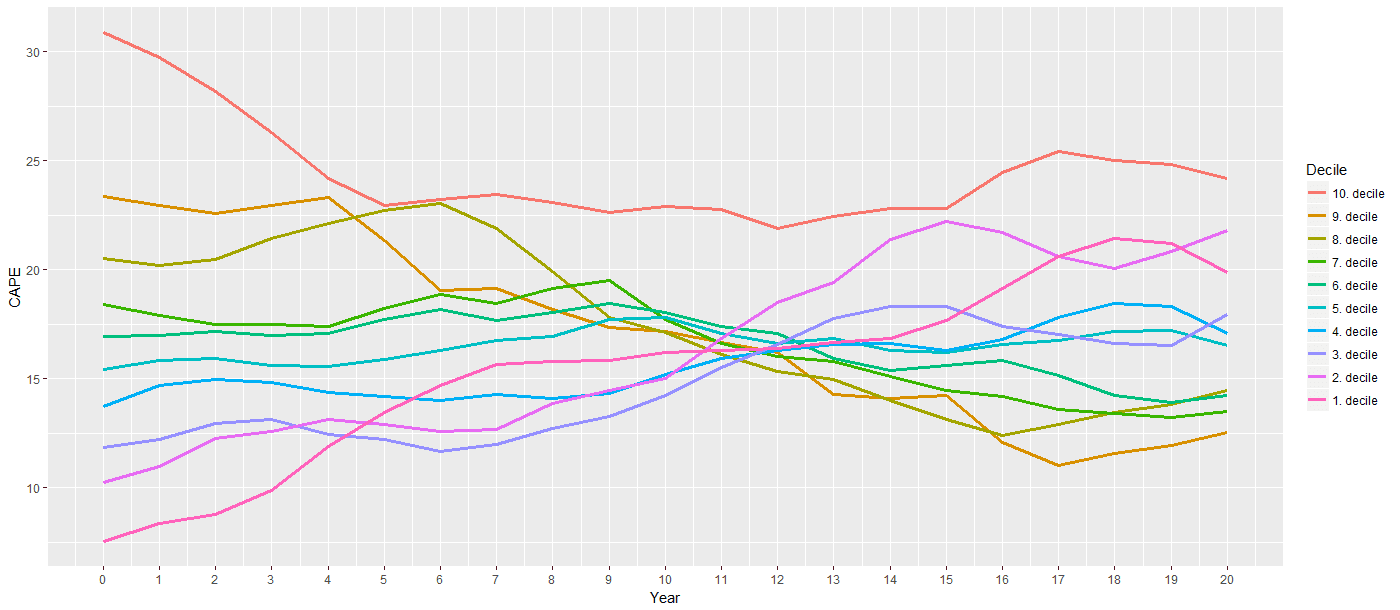New Tariff Burden For US Airlines From Airbus

Table of Contents
The Impact of Airbus Tariffs on Airline Operations
The new tariffs on Airbus aircraft have far-reaching consequences for US airlines, extending beyond the initial cost of acquiring new planes. The increased expenses directly affect airline operations in several key areas.
Increased Aircraft Acquisition Costs
The tariffs directly increase the price US airlines pay for Airbus aircraft, creating a significant financial strain. This has several knock-on effects:
- Higher upfront costs for new planes: Airlines face substantially increased capital expenditures when purchasing new Airbus aircraft, impacting their budgets and financial planning. This is particularly challenging for smaller airlines with limited financial resources.
- Reduced profitability margins: The added expense per aircraft directly cuts into profit margins, forcing airlines to find ways to offset these costs. This could lead to a reduction in other areas of investment or a pressure on profitability.
- Potential delays in aircraft deliveries: Some airlines might reconsider or delay planned fleet upgrades due to the increased financial burden, impacting their long-term modernization plans. This delay could affect competitiveness and efficiency.
- Increased pressure on airlines to absorb costs: Airlines are under immense pressure to absorb these costs without passing them entirely onto consumers, impacting their overall financial health and stability.
Ripple Effects on Maintenance and Spare Parts
The impact of the Airbus tariffs US airlines face doesn't end with new aircraft purchases. The tariffs also significantly increase the cost of maintaining existing Airbus fleets:
- Increased cost of spare parts: The tariffs extend to spare parts and components, leading to higher maintenance bills and operational expenses. This is a substantial ongoing cost for airlines.
- Higher maintenance bills: The cumulative effect of higher spare parts costs and potential labor increases creates a substantial burden on airline maintenance budgets.
- Potential for increased aircraft downtime: Higher maintenance costs could potentially lead airlines to delay necessary maintenance, increasing the risk of aircraft downtime and disruptions to flight schedules.
- Need for more efficient maintenance strategies: Airlines are under pressure to find more efficient and cost-effective maintenance strategies to mitigate the impact of the increased expenses. This may involve adopting new technologies or outsourcing.
The Potential for Higher Airfares
The increased costs associated with Airbus tariffs US airlines are likely to be passed on to consumers in the form of higher airfares.
Passing on Costs to Consumers
Airlines will inevitably try to recoup some of these additional costs:
- Increased ticket prices for domestic and international flights: Consumers can expect to see higher airfares on routes served by Airbus aircraft, impacting both domestic and international travel.
- Reduced affordability of air travel: Higher airfares reduce the affordability of air travel, particularly for budget-conscious travelers and those relying on air travel for essential purposes.
- Potential impact on tourism and business travel: The increased cost of air travel could negatively impact tourism and business travel, potentially affecting economic activity in related sectors.
- Competition among airlines to mitigate price increases: Airlines will likely engage in competitive strategies to mitigate the extent of price increases, creating a complex dynamic in the market.
Impact on Route Planning and Frequency
To manage the added costs, airlines may make adjustments to their flight schedules and routes:
- Route cancellations or reductions in frequency: Some less profitable routes might be cancelled or have their frequency reduced to minimize operational expenses.
- Impact on smaller airports and underserved communities: These adjustments could disproportionately affect smaller airports and underserved communities, limiting access to air travel.
- Potential for reduced competition on specific routes: Route cancellations or adjustments could lead to reduced competition on specific routes, potentially further impacting airfares.
- Airline strategies to optimize routes and costs: Airlines will be forced to implement sophisticated strategies to optimize their route networks and minimize costs to maintain profitability.
The Broader Economic Implications of Airbus Tariffs
The Airbus tariffs US airlines face have wider economic ramifications beyond the aviation industry.
Job Security Concerns within the US Airline Industry
The increased operational costs could have serious consequences for employment within the industry:
- Potential for layoffs or reduced hiring: Airlines might be forced to reduce their workforce through layoffs or hiring freezes to manage increased costs.
- Impact on related industries, such as airport services: Job losses in the airline industry could have a ripple effect on related industries, such as airport services, ground handling, and catering.
- Implications for the overall US economy: The impact on employment within the aviation sector could have broader implications for the overall US economy.
- Calls for government intervention or assistance: The potential for job losses and economic disruption could lead to calls for government intervention or financial assistance for the affected airlines.
The International Trade War Context
These tariffs are part of a larger trade dispute between the US and the EU, creating uncertainty and instability:
- Global impact of the trade war: The broader trade war between the US and the EU creates global uncertainty, affecting various sectors beyond aviation.
- Potential for retaliatory tariffs from the EU: The EU could impose retaliatory tariffs on US goods, further escalating the trade dispute and impacting both economies.
- Uncertainty in the future of international aviation partnerships: The trade dispute creates uncertainty about the future of international aviation partnerships and collaborations.
- The role of international trade agreements: The situation highlights the crucial role of international trade agreements in regulating and managing trade disputes.
Conclusion
The new Airbus tariffs pose a significant challenge to US airlines, increasing operational costs and potentially leading to higher airfares for consumers. The ripple effects extend to job security and the broader economic landscape. Understanding the full impact of this Airbus tariffs US airlines burden is crucial for stakeholders across the industry. To stay informed about the latest developments and potential mitigating strategies, continue following news and analysis on this important issue. Stay updated on the evolving situation with Airbus tariffs US airlines and their impact on the aviation industry.

Featured Posts
-
 Clayton Kellers 500 Point Milestone A Missouri Hockey Celebration
May 03, 2025
Clayton Kellers 500 Point Milestone A Missouri Hockey Celebration
May 03, 2025 -
 Latest Lotto Lotto Plus 1 And Lotto Plus 2 Draw Results
May 03, 2025
Latest Lotto Lotto Plus 1 And Lotto Plus 2 Draw Results
May 03, 2025 -
 Addressing Investor Concerns About High Stock Market Valuations Bof A
May 03, 2025
Addressing Investor Concerns About High Stock Market Valuations Bof A
May 03, 2025 -
 Exclusive The U S Armys Plans For A Dramatic Increase In Drone Deployments
May 03, 2025
Exclusive The U S Armys Plans For A Dramatic Increase In Drone Deployments
May 03, 2025 -
 Winning Numbers Daily Lotto Wednesday 16th April 2025
May 03, 2025
Winning Numbers Daily Lotto Wednesday 16th April 2025
May 03, 2025
